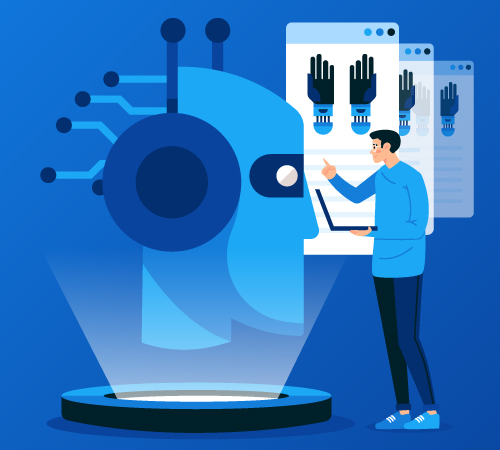Data science vs. machine learning is trending, as they are the two most important technologies that help enterprises scale their business using unstructured, structured, and semi-structured data. The business world is heavily dependent on data sets and technologies like machine learning and data science today.
The raw data from various sources is gathered into a single source of truth. Then, data scientists use machine learning and data science to study data patterns and drive insights from them. With advanced technologies, data scientists and machine learning engineers can unlock the power of data using statistical methods and algorithms.
In this detailed article, we reveal what’s the difference between machine learning models and data science algorithms.
What Is Data Science?
Data science is a broad term that involves cleansing, preparing, and analyzing massive amounts of data. The field of science focuses on data and applies the latest techniques to find insights from the raw data.
The role of data scientists is to understand the data science lifecycle and extract meaning from the data to help enterprises make smart business decisions and improve business profits.
Data science is often confused with data analysis and data mining. However, they are not the same. Instead, data science is the umbrella term that covers both techniques, including data mining and data analytics. Data mining uncovers the repetitive patterns in a dataset, whereas data analysis removes reductant information to reveal valuable insights from data.
What Is Advanced Machine Learning?
Machine learning is the subset of AI (Artificial Intelligence) that uses machine learning algorithms to extract useful information and predict future trends. The statistical analysis and predictive analysis spot patterns in the structured data.
Machine learning is one of the major technologies that work on the idea of teaching and training machines by feeding them with data. When the machines are fed semi-structured and structured data, they learn, grow, adapt, and develop to help humans in various business operations.
Inferenz AI/ML experts help enterprises to catch up with the data science and machine learning trends, implement the latest tools, and generate better revenue.
Key Difference Between Data Science Vs. Machine Learning
Here is the infographic representation of the major differences between data science vs. machine learning.

Here are a few major differences between data science and machine learning. Read about data science vs. machine learning below.
Data Science
- Data scientists collect data and extract information from semi-structured and structured data.
- Enterprises use data science to find insights from the data, but the technology is not involved in predicting future trends.
- Data science can work with manual methods or procedures; however, they do not help make decisions.
- The field of data science includes using different technologies, including Python, R, Scala, Hadoop, Hive, etc.
- Raw, structured, and unstructured data can be collected and transformed through data science algorithms.
- The deep study of data is the umbrella term that involves big data collection, cleaning, processing, etc.
Machine Learning
- ML or Machine learning is a branch of computer science that allows machines to learn without being programmed.
- Organizations focus on specific patterns in data to make future predictions. Using machine learning techniques and mathematical models, enterprises can use historical data and stay ahead.
- Machine learning involves algorithms that are hard to implement manually.
- Advanced and traditional machine learning specialists use Python, R, and statistical models.
- Unlike data science, machine learning allows using structured data to drive insights.
- Machine learning specialist focuses on unsupervised learning, reinforcement, and supervised learning.
Unlock The Power Of Data With Data Science And Machine Learning
Organizations now emphasize using a set of data to improve products and make smart business decisions. Data science and machine learning are deeply related and go hand in hand to automate mundane tasks and fasten business processes. Shortly, enterprises will use technologies like AI and ML prominently to analyze large amounts of data and learn from data.
Inferenz experts help enterprises export data from sources and load data to the destination. Our data scientists transform, enrich, and make analysis-ready data to perform insightful analysis using BI tools. If you intend to know more about the difference between data science and machine learning, contact the Inferenz experts.
FAQs About Data Science & Machine Learning
- Which is better: machine learning or data science?
Enterprises must focus on both technologies to better use data historical data and interpret industry trends. It is not about data science vs. machine learning; instead, it is about how to use both technologies for business success.
- Is machine learning used in data science?
Data science uses machine learning and artificial intelligence techniques to predict future trends. It gives enterprises a medium to use historical data to improve business decisions.
- What are the applications of machine learning?
Some of the applications of ML include the automation of mundane tasks, finding patterns to prevent fraud, and using image detection in the healthcare industry to improve patient care. For example, a study revealed that when machine learning is used in healthcare, it offers 95% accuracy in predicting a patient’s death.
- What are the challenges of machine learning techniques?
Machine learning focuses on data; however, the lack of diversity in data points makes data processing challenging for machines. This is because machines cannot work if there is no data available. A team of machine learning engineers will help you appropriately store and analyze data to improve business decisions.













